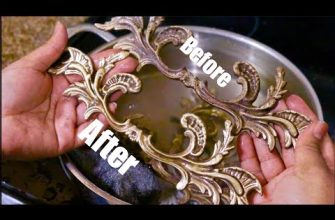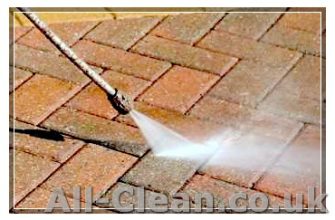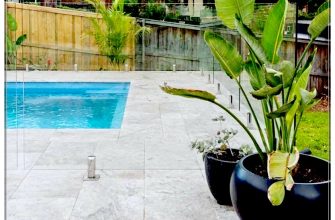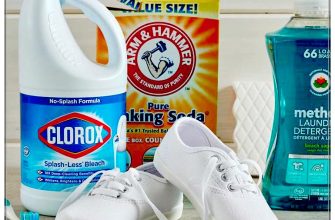
Quartz countertops have become increasingly popular in homes due to their many advantages. They are durable, resistant to stains and scratches, and come in a wide range of designs and styles. However, there are certain things that should be avoided when it comes to cleaning and maintaining quartz surfaces, as they can have a negative effect on the surface and cause damage.
One of the things that should be avoided when cleaning quartz countertops is the use of abrasive cleaners. This includes cleaners that contain bleach, ammonia, or vinegar. These cleaners can cause the surface to become discolored, especially in light-colored quartz countertops. Additionally, using cleansers with a high pH level can cause the surface to become less resistant to stains and marks.
It’s important to note that using certain cleaning products can have permanent effects on quartz countertops. For example, baking soda and oven cleaners should be avoided, as they can leave permanent marks and damage the surface. Likewise, using abrasive scrub brushes or steel wool can also cause permanent scratches on the quartz surface.
When it comes to cleaning quartz countertops, it’s best to stick to mild and gentle cleaners. Utilizing warm soapy water or non-abrasive cleaners specifically designed for quartz countertops is a safe and effective choice. If you’re uncertain about what products to use, it’s always a good idea to consult with a professional for advice on the best cleaning methods for your specific quartz countertops.
- Why Avoid Using Certain Products on Quartz Countertops
- Acidic Cleaners Can Damage the Surface
- Scouring Pads and Abrasive Cleaners May Cause Scratches
- Avoid Using Knives Directly on Quartz Countertops
- Hot Pots and Pans: Use Trivets or Heat Resistant Mats
- Why You Shouldn’t Place Hot Pots and Pans Directly on Quartz Countertops
- The Advantages of Using Trivets or Heat Resistant Mats
- FAQ: What About Baking Sheets and Oven Trays?
- Actions to Avoid
- Prevention and Maintenance Tips for Quartz Countertops
- Choose the Right Cleaning Solutions
- Be Mindful of Stains and Spills
- Protect from Heat and Scratches
- Utilize Cutting Boards and Trays
- Regularly Clean and Maintain
- Avoid Harsh Chemicals and Solutions
- Take Precautions with Harsh Actions
- Beyond Cleaning: Maintenance Tips
- The Benefits of Quartz Countertops
Why Avoid Using Certain Products on Quartz Countertops
Quartz countertops are a popular choice for many homeowners due to their durability, low maintenance, and aesthetic appeal. However, it is important to know which products to avoid using on these surfaces to ensure their longevity and preserve their beauty.
Quartz countertops require proper care and attention to stay in good condition. While they are heat resistant, it is still best to use trivets or hot pads when placing hot dishes or pans on the surface to prevent any potential damage. Quartz is also not impervious to quick temperature changes, so it is crucial to avoid exposing the countertop to extreme heat or cold to prevent cracks or other damages.
When cleaning quartz countertops, it is best to avoid using abrasive cleaners or cleansers with high pH levels. Harsh chemicals can cause permanent damage to the surface, such as discolouration or dulling of finishes. Instead, opt for mild soap and warm water or quartz-specific cleaners, which are gentle yet effective in removing stains and maintaining the countertop’s shine.
There are a few everyday household items that should be avoided when cleaning quartz countertops. Vinegar, for example, is acidic and can cause damage to the surface over time. Ammonia-based cleaners like Windex should also be avoided, as they can strip away the protective sealant of the countertop. Baking soda, although a common cleaning agent, should not be used on quartz worktops as it can be abrasive and leave scratches.
When it comes to spills or stains, it is important to clean them up as soon as possible to prevent any long-term damage. Even though quartz is non-porous, liquid substances like oil, wine, or tomato sauce can still seep into small cracks or scratches, leading to discoloration or stains. A soft cloth or sponge should be used for gentle cleaning, followed by a dry cloth to ensure the surface is completely dry.
If you’re unsure about a particular cleaning product, it’s always best to consult with the manufacturer or a professional for guidance. They can provide expert advice on which cleaners and solutions are safe for use on quartz countertops.
In conclusion, caring for quartz countertops involves avoiding certain products and practices. By following these guidelines, homeowners can ensure that their quartz worktops remain beautiful and in excellent condition for years to come.
Acidic Cleaners Can Damage the Surface
When it comes to cleaning your quartz countertops in the kitchen, it’s important to be aware of what not to use in order to prevent any damage to the surface. One of the key preventative actions you should take is to avoid using acidic cleaners on your quartz countertops.
The reason why acidic cleaners should be avoided is because they can cause the quartz surface to become dull and discolored. This is especially true if the cleaner is left on the surface for a long period of time or if it is used frequently.
So what kind of cleaners should you avoid? Here are a few examples:
- Ammonia-based cleaners like Windex
- Any cleaners that contain vinegar
- Cleaning solutions with high levels of acidity
Although these cleaners may be effective for other surfaces, they are not suitable for quartz countertops. The acidity in these cleaners can strip away the quartz’s protective finishes, leaving the surface vulnerable to damage.
If you’re looking for safe and effective ways to clean your quartz countertops, here are a few recommendations:
- Warm water with a little bit of dish soap
- A mixture of baking soda and water to create a paste for stubborn stains
- Mild household cleaners specifically designed for quartz surfaces
When cleaning your quartz countertops, it’s important to use non-abrasive sponges or soft cloths to avoid scratching the surface. If there are any spills or stains, it’s best to clean them up quickly to prevent any permanent damage.
By utilizing these simple cleaning techniques, you can maintain the shiny and smooth finish of your quartz countertops for years to come.
Scouring Pads and Abrasive Cleaners May Cause Scratches
When it comes to cleaning quartz countertops, it’s important to be aware of what not to use. One common mistake people make is using scouring pads and abrasive cleaners, which can cause scratches on the surface of the countertops.
Quartz countertops have a practical and clean look, but they are not impervious to damage. The material is made up of crushed quartz, resin, and pigments, which gives it its durable and non-porous nature. However, the surface of the countertops can still be scratched if not handled correctly.
Scouring pads and abrasive cleaners have a rough texture that can leave permanent marks on your quartz countertops. When using these products, the motion of scrubbing back and forth can create small scratches on the surface. Over time, these scratches can accumulate and make the countertop look dull and worn out.
It’s also important to note that not all countertop finishes will react the same way to scouring pads and abrasive cleaners. Some finishes, like dark or grey countertops, are more prone to showing scratches, while others may hide them better. However, it’s always best to err on the side of caution and avoid using these products altogether.
If you have a stain or a mark on your quartz countertops, it’s a good idea to try a gentler cleaning method first. A simple solution of soapy water and a soft cloth can often do the trick. You can also use gentle cleaning wipes or mild household cleaners like Windex or Lysol, but be sure to read the manufacturer’s instructions and test it on a small, inconspicuous area first.
Preventative measures are also key in keeping your quartz countertops scratch-free. Using cutting boards for food preparation and placing hot pans on trivets or hot pads can help avoid scratches and heat damage. Regularly wiping down your countertops with a damp cloth or sponge will also remove any spills or debris before they have a chance to dry and require more intensive cleaning.
In summary, when it comes to cleaning quartz countertops, steer clear of scouring pads and abrasive cleaners. Instead, opt for gentle cleaning methods using soapy water, soft cloths, and mild household cleaners. By avoiding these abrasive products, you can keep your quartz countertops looking like new for years to come.
Avoid Using Knives Directly on Quartz Countertops
Quartz countertops, known for their durability and resistance to stains, scratches, and heat, are a popular choice for kitchens. However, it’s important to remember that even though quartz is a tough material, it is not completely impervious to damage. One particular action that should be avoided is using knives directly on quartz countertops.
The hard surface of a quartz countertop can be damaged by sharp objects like knives. This can result in scratches, chips, or even cracks in the surface. And unfortunately, these marks can be permanent and difficult to repair.
So, what should you use instead of knives on your quartz countertop? Sponge or soft cloth can be a good option for cleaning. These materials are gentle and won’t cause any damage to the surface. Additionally, using warm soapy water or a mild household cleaning product is safe and effective for maintaining the shiny and pretty appearance of your quartz worktop.
If you’re looking for a quick and practical cleaning solution, you can use commercial cleaning products like Windex or Lysol wipes. These products are safe to use on quartz surfaces and can help to remove any marks or stains without affecting the texture or leaving any residue behind.
But it’s worth noting that while cleaning agents such as baking soda and ammonia can be used on quartz countertops, they should be used sparingly and with caution. These substances can have an abrasive effect when combined with other cleaning solutions or applied with too much force. Therefore, it’s best to avoid using them and stick to gentler options for everyday maintenance.
In summary, while quartz countertops are known for their durability, it’s important to take care of them properly to avoid any damage. Avoid using knives directly on the surface, and instead, opt for gentle cleaning materials like sponges or soft cloths. Use warm soapy water or mild household cleaners to keep your quartz worktop looking its best. And if you need a quick cleaning solution, consider using commercial cleaning products that are safe for quartz surfaces. By following these tips, you can enjoy the advantages of a quartz countertop for years to come without worrying about permanent damage.
Hot Pots and Pans: Use Trivets or Heat Resistant Mats
Quartz countertops are a popular choice for kitchens due to their durability, versatility, and stylish appearance. However, when it comes to hot pots and pans, it’s important to take some extra precautions to avoid damage and maintain the quality of your quartz surface.
Why You Shouldn’t Place Hot Pots and Pans Directly on Quartz Countertops
Quartz countertops are not heat-resistant, meaning they can be damaged by extreme temperatures. Placing hot items directly on the surface can cause cracks, discoloration, or thermal shock, leading to costly repairs or replacements. It’s best to use trivets or heat resistant mats as a preventative measure to protect your quartz countertops from heat-related damages.
The Advantages of Using Trivets or Heat Resistant Mats
- Preventative Measures: Trivets or heat resistant mats act as a protective barrier between the hot cookware and the quartz surface, preventing heat-related damage.
- Preserve the Gloss and Appearance: Using trivets or heat resistant mats helps maintain the shiny and polished look of your quartz countertops, keeping them looking as good as new.
- Easy Maintenance: Trivets and mats are easy to clean and require minimal maintenance. Simply wipe them down with a damp cloth or use mild soapy water for more stubborn stains.
- Practical and Stylish Solutions: There are a wide variety of trivets and heat resistant mats available in different styles and designs, allowing you to choose options that complement your kitchen decor.
FAQ: What About Baking Sheets and Oven Trays?
Baking sheets and oven trays can also emit heat, so it’s important to use caution when placing them on quartz countertops. It’s recommended to use a trivet or heat resistant mat underneath these items to ensure the prevention of any potential heat-related damage.
Actions to Avoid
To keep your quartz countertops in excellent condition, it’s important to avoid the following actions:
- Placing hot pots, pans, or baking sheets directly on the quartz surface
- Using abrasive cleaning solutions or cleansers that can damage the quartz
- Using sharp tools or knives directly on the countertop, as they can cause scratches
- Using vinegar or any acidic substances for cleaning, as they can damage the quartz’s gloss and surface quality
By following these guidelines and using trivets or heat resistant mats, you can enjoy your quartz countertops for years to come, keeping them looking shiny and preventing any heat-related damage.
Prevention and Maintenance Tips for Quartz Countertops

Choose the Right Cleaning Solutions
When it comes to cleaning quartz countertops, it’s important to choose the right cleaning solutions. Avoid using harsh chemicals or abrasive cleaners that can cause damage to the surface. Instead, opt for gentle cleansers that are specifically designed for quartz countertops. Some recommended options include mild soap and water, ammonia-based cleaners, or specialized quartz countertop cleaners.
Be Mindful of Stains and Spills
Prevention is key when it comes to maintaining the appearance of your quartz countertops. Be sure to wipe up any spills or stains immediately using a soft cloth or sponge. Avoid leaving acidic or colored substances like wine, coffee, or tomato sauce on the surface for an extended period, as they can potentially cause permanent discoloration or damage to the quartz.
Protect from Heat and Scratches
Although quartz countertops are known for their durability, it’s best to take precautions to prevent any potential damage. Always use trivets or hot pads when placing hot pots or pans on the countertop to avoid heat-related cracking or discoloration. Similarly, use cutting boards when performing food preparation to prevent scratches on the surface.
Utilize Cutting Boards and Trays
One of the easiest ways to prevent damage to your quartz countertops is to utilize cutting boards and trays. Avoid cutting or chopping directly on the surface, as this can lead to scratches or marks. Place trays or mats under frequently used items like soap dispensers, utensil holders, or small kitchen appliances to prevent them from leaving permanent marks on the countertop.
Regularly Clean and Maintain
To keep your quartz countertops looking their best, regular cleaning and maintenance are necessary. Wipe down the surface with a soft cloth or sponge and mild soap solution on a daily basis. For tougher stains or marks, utilize gentle scrubbing actions with a non-abrasive sponge or cloth. Avoid using harsh scrub brushes or scouring pads, as they can damage the finish of the quartz.
Avoid Harsh Chemicals and Solutions
While quartz countertops are resistant to many household chemicals, it’s best to avoid using harsh solutions that can potentially damage the surface. Stay away from products like bleach, Clorox, or Lysol, as they can cause discoloration or dullness. Instead, stick to mild soap and water solutions or specialized quartz countertop cleaners to maintain the look and finish of your countertops.
Take Precautions with Harsh Actions
If you encounter an obstinate stain or mark on your quartz countertop, it’s essential to take precautions before resorting to harsh actions. Start by utilizing mild soap and water solutions or specialized quartz cleaners. If the stain persists, try using a non-abrasive sponge or cloth with gentle scrubbing motions. Only consider stronger solutions or actions as a last resort, as they may have a detrimental effect on the surface of the quartz.
Beyond Cleaning: Maintenance Tips

Maintenance for quartz countertops goes beyond just cleaning. To keep your countertops looking their best for years to come, follow these additional tips:
- Avoid placing heavy objects directly onto the countertop, as this can cause cracks or damage.
- Use coasters or placemats under glasses or hot pans to prevent any potential damage.
- Regularly inspect the countertop for any signs of wear or damage, such as cracks or chips. If any issues are detected, contact a professional for repair.
- Keep the countertop dry and avoid leaving excess water or moisture on the surface, as this can lead to potential staining or discoloration.
The Benefits of Quartz Countertops
Quartz countertops offer numerous advantages that make them a popular choice for homeowners:
- Durability: Quartz countertops are known for their durability and are resistant to cracks, scratches, and stains.
- Low Maintenance: With proper care and maintenance, quartz countertops can maintain their appearance for many years without the need for extensive upkeep.
- Color Options: Quartz countertops come in a wide range of colors, allowing homeowners to choose a design that matches their aesthetic preferences and home decor.
- Non-Porous Surface: The non-porous surface of quartz countertops makes them resistant to bacteria growth and easy to clean.
- Consistent Finish: Unlike natural stone countertops, quartz countertops have a consistent finish throughout the slab, ensuring a uniform appearance.
By following these prevention and maintenance tips, you can ensure that your quartz countertops remain beautiful and functional for years to come. With the right care, your quartz countertops can be a dream addition to your home.








